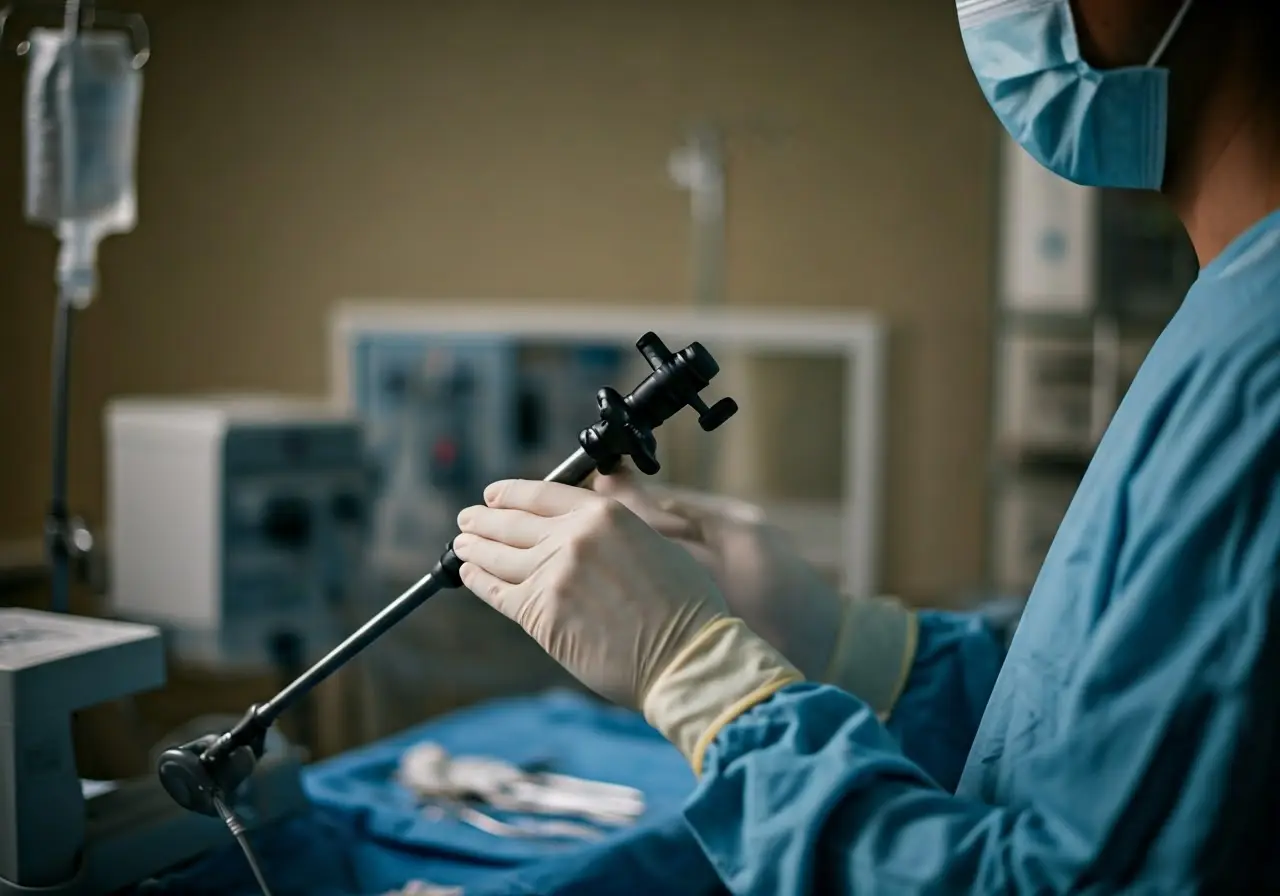How Minimally Invasive Bariatric Procedures Are Changing Lives
Minimally invasive bariatric procedures have revolutionized the field of weight loss surgery, providing patients with safer, more effective options for achieving lasting results. In this blog, we’ll explore how these cutting-edge techniques are transforming lives, from the benefits they offer to real-life success stories.
Understanding Minimally Invasive Bariatric Procedures
Minimally invasive bariatric procedures, such as laparoscopic sleeve gastrectomy and gastric banding, involve making small incisions instead of the large cuts used in traditional surgery. This approach offers several benefits, including reduced pain, shorter hospital stays, and quicker recovery times.
These minimally invasive techniques utilize specialized instruments and cameras to perform the surgery through small incisions. This type of surgery, commonly known as laparoscopy, allows surgeons to operate with high precision while minimizing tissue damage and blood loss. Because the incisions are smaller, patients generally experience less post-operative pain and require fewer pain medications.
Moreover, the smaller incisions used in minimally invasive bariatric procedures significantly reduce the risk of complications such as infections, hernias, and adhesions. By avoiding the need for large abdominal cuts, patients can also expect fewer visible scars, which is a considerable psychological benefit for many. Enhanced recovery protocols that often accompany these procedures further promote faster healing and improve overall patient outcomes.
The advantages of minimally invasive bariatric procedures extend beyond the immediate post-operative period. Patients tend to recover more quickly, allowing them to return to their normal activities and work sooner. This swift return to everyday life can be crucial for maintaining long-term motivation and commitment to a healthier lifestyle. Such quick recoveries also facilitate early engagement in post-surgery support programs and physical therapy, which are essential for sustained weight loss and overall well-being.
The Benefits of Minimally Invasive Techniques
Patients opting for minimally invasive procedures often experience less post-operative pain, fewer complications, and faster returns to their daily routines. Additionally, the precision of these methods can lead to better long-term weight loss success and overall health improvements.
One of the most compelling benefits of minimally invasive bariatric surgery is the reduction in hospital stay duration. Patients can often leave the hospital within one to two days post-surgery, allowing them to recover in the comfort of their own homes. This not only alleviates the physical and emotional stress of prolonged hospitalization but also significantly reduces healthcare costs.
Furthermore, the accuracy of minimally invasive techniques often results in more effective surgeries with fewer complications. This precision reduces the likelihood of needing additional corrective surgeries, which can be both costly and physically taxing. Studies have shown that minimally invasive bariatric patients generally report higher satisfaction rates and improved quality of life post-surgery.
In addition to physical health benefits, the minimal invasiveness of these procedures has a profound impact on mental and emotional well-being. Many patients report feeling more confident and self-assured following surgery due to faster and less noticeable recovery. These positive psychological effects bolster long-term adherence to lifestyle changes and healthy habits, further ensuring the success of the weight loss journey.
Who Is a Candidate for Minimally Invasive Bariatric Surgery?
Ideal candidates for these procedures are typically individuals with a Body Mass Index (BMI) over 35 who have not found success with other weight loss methods. Candidates undergo thorough evaluations to ensure they are suitable for surgery, including assessments of their medical history, physical condition, and psychological readiness.
Before undergoing minimally invasive bariatric surgery, patients must be evaluated on several fronts. This includes a comprehensive review of their medical history to identify any underlying conditions that might complicate the procedure. Common conditions that are assessed include cardiovascular diseases, diabetes, and sleep apnea. The screening process also involves various physical examinations and tests, such as blood work, imaging studies, and stress tests.
Equally important is the psychological assessment, which helps ensure that potential candidates are mentally and emotionally prepared for the significant lifestyle changes required post-surgery. This evaluation often involves consultations with psychologists or counselors who specialize in bariatric surgery. Their role is to gauge the patient’s understanding of the surgery, its risks and benefits, and their readiness to adhere to long-term dietary and behavioral modifications.
Moreover, patients may need to participate in pre-surgery educational sessions or support groups. These programs are designed to provide information about the surgical process, recovery, and life after surgery. They also offer a forum for patients to share experiences, ask questions, and gain support from peers who are undergoing similar journeys. This comprehensive preparation ensures that candidates are well-informed and fully committed to achieving successful outcomes.
Success Stories: Real People, Real Results
Many patients have transformed their lives through minimally invasive bariatric procedures. From shedding significant amounts of weight to resolving co-morbidities such as diabetes and hypertension, the positive impacts on health and quality of life are undeniable. These success stories show the incredible potential of these innovative surgeries.
Consider the case of Jessica, a 45-year-old mother of two, who struggled with obesity for most of her adult life. After exhausting numerous diets and exercise programs with little success, she opted for a minimally invasive sleeve gastrectomy. Within a year, Jessica lost over 100 pounds and experienced a dramatic improvement in her overall health. She no longer needed medication for her diabetes, and her energy levels soared, allowing her to be more active and engaged with her children.
Another inspiring example is John, a 52-year-old businessman who opted for laparoscopic gastric banding. Prior to surgery, John battled severe sleep apnea and hypertension, conditions that significantly impacted his quality of life. Post-surgery, John not only achieved remarkable weight loss but also saw a complete reversal of his sleep apnea and a drastic reduction in his blood pressure levels. These changes enabled him to perform better at work and enjoy an improved quality of life.
These success stories are not isolated incidents but part of a growing trend among minimally invasive bariatric patients. Individuals who commit to these procedures and follow the prescribed lifestyle changes often see transformative results, both physically and emotionally. The ripple effect of these transformations extends beyond the patients themselves, positively impacting their families, communities, and workplaces.
The Future of Bariatric Surgery
With ongoing advancements in medical technology, the future of bariatric surgery looks promising. Innovations like robotic-assisted surgery and improved pre- and post-operative care protocols continue to enhance outcomes for patients, making these life-changing procedures even more accessible and effective.
Robotic-assisted surgery is one of the most exciting developments in the field. This technology allows surgeons to perform highly complex procedures with enhanced precision and control. Robots provide a level of dexterity and stability that surpasses human capabilities, which is particularly advantageous in minimally invasive procedures. Patients benefit from even smaller incisions, reduced blood loss, and faster recovery times.
In addition to robotic technology, advancements in imaging and diagnostic tools are revolutionizing the pre-operative planning process. High-resolution imaging techniques allow for more accurate assessments of a patient’s anatomy, enabling surgeons to tailor procedures to the individual’s unique needs. This personalized approach further maximizes the effectiveness of the surgeries and minimizes potential risks.
Post-operative care protocols are also seeing significant improvements. Enhanced recovery after surgery (ERAS) programs, which focus on optimizing perioperative care, are becoming standard practice in many institutions. These programs aim to minimize surgical stress, improve pain management, and expedite recovery. The incorporation of ERAS protocols has been shown to reduce hospital stays, lower complications, and improve overall patient satisfaction.
Ultimately, the future of minimally invasive bariatric surgery is bright, with continuous innovations poised to make these procedures safer and more effective. Ongoing research and development in surgical techniques, medical devices, and patient care protocols ensure that individuals seeking weight loss solutions will have access to the best possible options. As we look ahead, it is clear that minimally invasive bariatric procedures will continue to play a pivotal role in transforming lives and promoting healthy futures.
A New Lease on Life Through Minimally Invasive Bariatric Procedures
Minimally invasive bariatric procedures have undoubtedly changed the landscape of weight loss surgery, offering patients a safer, more effective path to achieving their health goals. With their minimal recovery time, reduced risk of complications, and life-changing outcomes, it’s no wonder that more and more individuals are turning to these advanced techniques. It’s clear that these procedures are not just about losing weight, but about gaining a new lease on life.

